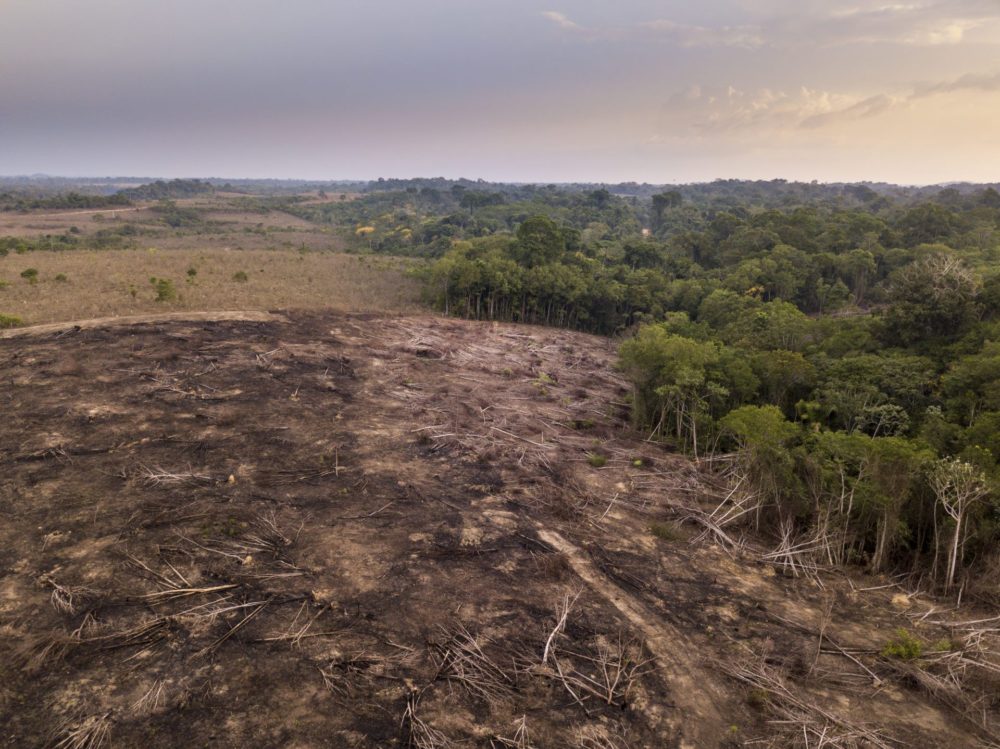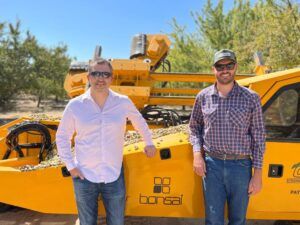Ceres, a nonprofit founded on the principle that sustainability makes good business sense, has assessed efforts by some of the world’s largest companies to eliminate deforestation and found most of them could do better.
According to Ceres, “agricultural commodity production continues to drive forest loss at an alarming rate, globally replacing an average of 5.7 million hectares of forests annually, and tropical deforestation rates continue to rise.”
Ceres’ inaugural ‘deforestation scorecard’—which assesses 53 firms with significant exposure to commodities driving deforestation* including ADM, Cargill, Bunge, Danone, Mondelēz International, McDonald’s, Nestlé, and Tyson Foods— found that just four have no-deforestation policies covering their full supply chains and all of their sourcing regions.
According to Ceres:
- Most companies assessed have a no-deforestation policy, but only 18 out of 53 have a company-wide policy that covers all the commodities (palm oil, soy, beef, cocoa, coffee, wood, rubber) subject to the EU’s new Regulation on Deforestation-free Products (EUDR).
- Only four of the 53 (Amaggi, Kering SA, Mondi Group, Suzano) have policies that cover their full supply chains and all their sourcing regions.
- Most have specified a target date by which they intend to implement their policies. But only eight meet the recommended 2025 target date.
- Only five include a cutoff date that prohibits commodities from being produced on land that was deforested after 2020. (A 2020 cutoff date is necessary for compliance with the new EU regulations and removes the incentive for continued deforestation.)
“As part of transition planning, we need to see companies develop and implement comprehensive, time-bound no-deforestation policies that cover all commodities across all supply chains and sourcing regions, which includes ambitious targets and cutoff dates.” Meryl Richards, program director food and forests, Ceres
Ceres: ‘There is ample data and innovative tools available to monitor deforestation in real-time’
While ingredients such as cocoa are produced at thousands of small farms and consolidated at multiple points along a supply chain, which makes traceability very challenging, large companies can take action to ensure that they are not contributing to deforestation, said Meryl Richards, program director food and forests at Ceres.
She told AgFunderNews: “There is clear, established operational guidance available to companies, consensus on how to define deforestation, and ample data and innovative tools available to monitor deforestation in real-time.”
By and large, she claimed, “companies know what these are” but tend to focus resources on short-term priorities given that “implementing sustainable practices often requires upfront investments in technology, training, and traceability.”
What role do third-party certification schemes play in helping to tackle deforestation?
Asked what role third parties such as the Round Table on Sustainable Palm Oil (RSPO) and the Round Table on Responsible Soy Association (RTRS) can play in helping companies source key commodities more responsibly, she said: “Third party certification systems can play a key role in meeting deforestation-free sourcing goals.
“However, not all certification schemes are created equal, and there are not robust certification schemes for all commodity areas… no certification system exists for sustainable beef, for example.”
Meanwhile, mass balance certification models cannot be used to support deforestation-free sourcing commitments “as these certifications permit the mixing of material from certified and non-certified sources,” she noted.
While many people view mass balance schemes as a key part of the roadmap towards more sustainable supply chains, the “introduction of non-certified materials that are not held to the same standard introduces risk as it creates opportunities for deforestation and other sustainability issues to enter the mix, and there is no guarantee that certified material is included in any given final product,” added Richards.
“This was an issue we found while reviewing company policies for our Deforestation Scorecard. For example, many of the companies using RPSO certification to support their deforestation-free palm oil commitments rely on mass balance.”
The EU Regulation on Deforestation-Free Products, meanwhile, requires that commodities used in products falling under its scope are “traceable to the plot of land” from which they were sourced, ruling out products sourced under mass balance schemes.
Coffee, cocoa, rubber further behind than soy and palm oil
In general, said Richards, more work has been done on responsible sourcing for palm oil and soy than for coffee, cocoa, and rubber.
“Perhaps because deforestation issues related to beef, soy, palm oil, and timber, pulp, and paper have historically received more attention, these commodities are more commonly included in corporate no-deforestation commitments,” she added.
“Companies are less likely to have a deforestation-free commitment for coffee or cocoa, or rubber, especially.”
EU regulations
While progress on tackling deforestation has been frustratingly slow, EU regulations will drive change well beyond the region given the global nature of commodity supply chains, predicted Richards, who pointed to three key pieces of legislation:
- The Regulation on Deforestation-free Products (EUDR) compels companies to eliminate deforestation and forest degradation from their supply chains and operations from December 2024.
- The Corporate Sustainability Reporting Directive (CSRD) and The Corporate Sustainability Due Diligence Directive (CSDDD) require corporate disclosure of deforestation impacts and mitigation plans.
Click here to download the Ceres deforestation scorecard, which was released a day after Cargill announced an “accelerated commitment” to eliminate deforestation and land conversion from its direct and indirect supply chain of key row crops in Brazil, Argentina, and Uruguay by 2025.
*Ceres’ scorecard draws on publicly available information such as corporate sustainability reports, disclosures made through questionnaires companies submit to CDP on forest risk, and annual progress reports member companies submit to the RSPO. The 53 companies were selected based on their exposure to commodities that drive deforestation (based on info from the Forest 500, Global Canopy’s database of the 350 companies and 150 financial institutions with the largest influence on tropical deforestation), their EU market presence, and their influence over production in key sectors and regions.





